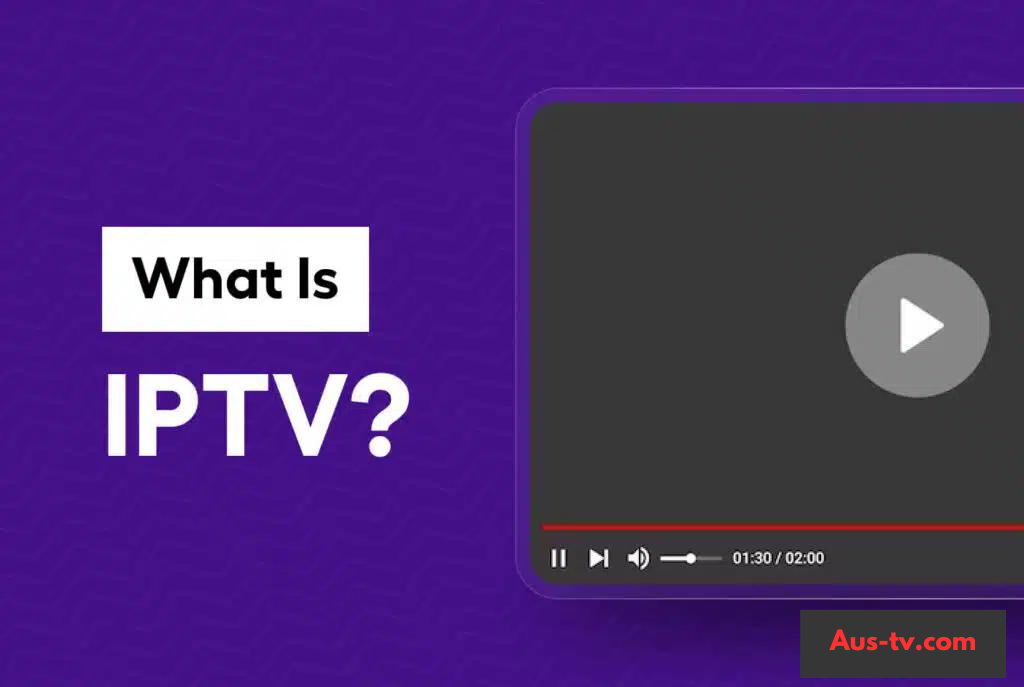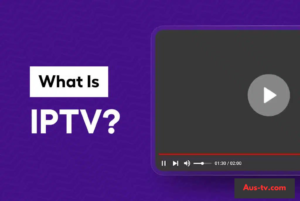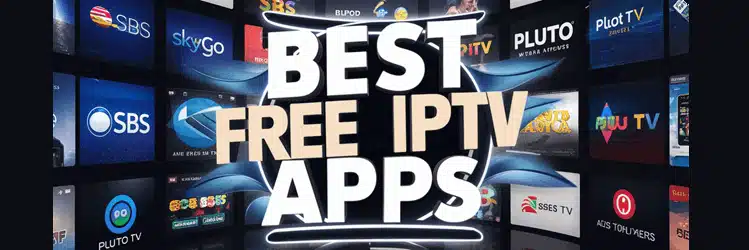What is IPTV: A Deep Dive into the World of Internet Protocol Television in 2024
What is IPTV:
Exploring the Significance of IPTV: Anticipating a 15.1% CAGR Growth in the Global Market from 2023 to 2032
The global IPTV market is poised for substantial growth, with a projected Compound Annual Growth Rate (CAGR) of 15.1% between 2023 and 2032, as reported by Market Research. These statistics underscore the increasing adoption of IPTV by users both now and in the foreseeable future. But what exactly is IPTV, and why is it becoming increasingly important?
IPTV, or Internet Protocol Television, enables users to enjoy their favorite shows not only on traditional TV screens but also on various devices such as smartphones, tablets, and laptops. The evolution of television has transformed the way people consume content, offering unprecedented flexibility that transcends the constraints of time and location. With IPTV, users can access programming at their convenience, regardless of when or where they are.
For content providers, this innovative technology presents an efficient means of content distribution. If you find yourself pondering, « What is IPTV, and how can I access it? » this article is here to provide all the essential information. We’ll delve into its target audience, operational mechanisms, and the diverse types of IPTV available.
Enjoy now the Best IPTV iptv service
What is IPTV (Internet Protocol Television)?
IPTV is a relatively new technology that uses the internet to deliver television programs. You only need high-speed internet to watch IPTV content.
Who is it for?
Understanding the Audience of IPTV: Catering to a Diverse Spectrum of Viewers
IPTV, beyond being a concept, is a platform designed to resonate with a wide-ranging audience. Its personalized approach makes it appealing to individuals of all ages, with varied preferences and scattered across different geographical locations. Let’s explore a few key categories of IPTV users:
- Sports Enthusiasts: IPTV provides the allure of live video streaming for sports aficionados, allowing them to catch games, matches, and tournaments from around the globe in real-time.
- International Viewers Seeking Diverse Content: IPTV’s capacity to deliver global content directly to screens makes it particularly beneficial for international viewers looking for a diverse range of programming.
- Families: With IPTV’s multi-device access, families can enjoy harmonious TV time, accommodating different preferences and viewing habits.
- Movie Fans: Dedicated film enthusiasts appreciate the convenience of video-on-demand platforms offered by IPTV, allowing them to watch a wide variety of movies at their convenience.
- Tech-Savvy Individuals: IPTV caters to tech-savvy individuals by providing a plethora of features and benefits that align with the preferences of this technologically inclined group.
In essence, IPTV’s versatility and capabilities are strategically crafted to meet the entertainment needs of a broad spectrum of viewers. This tailored approach enhances the overall entertainment experience by aligning content and features with the unique preferences of each user.
Now that you have a grasp of « what is IPTV, » let’s delve into how this innovative platform operates.
How does IPTV Work?
Transitioning Media to IP Packets: The Inner Workings of IPTV Content Delivery
In the realm of IPTV, content providers transform their media into IP packets, organizing and storing them on servers. When users express a desire for specific content, the IPTV provider retrieves the requisite IP packets and transmits them to the user’s device.
Having gained insight into « what is IPTV » and its content delivery mechanism, let’s shift our focus to IPTV boxes.
What Is an IPTV Box?
Unlocking the Potential of IPTV Boxes: Connecting to Your TV in Multiple Ways
An IPTV box serves as a pivotal device, translating internet protocol (IP) signals into a format compatible with televisions. The process involves receiving IP signals from an IPTV provider via the internet, followed by decoding and conversion into a TV-readable format.
There are three primary methods for connecting an IPTV box to a TV:
- HDMI Cable: The most prevalent method, using an HDMI cable ensures optimal picture quality, providing a seamless and high-definition viewing experience.
- AV Cables: While considered older, AV cables offer an alternative connection method. However, they may not deliver the same picture quality as HDMI cables.
- Wi-Fi: For those without HDMI or AV cables, connecting through Wi-Fi is a convenient option. This wireless connection allows users to link their IPTV boxes to TVs effortlessly.
Additionally, users can explore mirroring options:
- Mirroring with a PC: Utilizing a PC, you can stream IPTV content by mirroring your computer screen to the TV. This can be achieved through screen mirroring apps like Google Chromecast or Apple AirPlay.
In summary, IPTV boxes offer versatile connectivity options, allowing users to tailor their setup based on preferences and available resources.
Hybrid IPTV
Hybrid IPTV combines traditional TV (broadcasted over radio waves) with IP-based TV (delivered over the internet). It solves the issues with fully IP-enabled broadcasts by providing a more reliable and consistent viewing experience. This allows TV providers to expand their offerings through a single box.
For example, a TV provider could offer a service that includes traditional cable channels and on-demand streaming content. This enables users to watch their favorite shows, whether broadcast live or available on demand.
Types of IPTV Formats
IPTV formats include various ways of delivering content to viewers through the internet. Each format offers distinct features and caters to different use preferences.
Here are 3 common types of IPTV formats:
Navigating the IPTV Landscape: Pros, Cons, and Considerations
Pros of IPTV:
- Higher Quality Content: IPTV delivers content in higher resolutions, such as 4K and HDR, surpassing traditional television standards.
- Private Network Delivery: Leveraging private networks enhances security and reliability in content delivery.
- Global Reach: IPTV’s global accessibility transcends geographical constraints, enabling a diverse audience to access content.
- Potential for Advertising Revenue: IPTV presents opportunities for advertising revenue, serving as a potential revenue stream for providers.
- Rapid Market Growth: The IPTV market is rapidly expanding, riding the wave of increasing popularity in streaming services.
Cons of IPTV:
- Sensitivity to Packet Loss and Delays: IPTV’s sensitivity to packet delays and losses may result in lower video quality.
- Challenges of Legacy Networks: Legacy networks may require substantial bandwidth upgrades to support IPTV, limiting channel availability and video quality.
Challenges and Considerations:
- Wide Variety of Providers: The diverse array of IPTV providers poses challenges in terms of quality, content availability, and customer service, necessitating user discernment.
- Different Formats: Varied IPTV content formats raise compatibility concerns across devices, requiring providers to ensure accessibility and functionality on multiple platforms.
- Pirated Content: The prevalence of pirated and illegal content challenges the IPTV industry, necessitating efforts to regulate and combat unauthorized access.
- Network Improvements: A robust, high-speed internet connection is vital for seamless IPTV experiences, emphasizing the need for significant network improvements, especially in regions with limited connectivity.
- Rising User Demand: Increasing demand for IPTV services pressures providers to enhance infrastructure and content offerings to meet evolving user expectations.
- Subscription-Based Services: Subscription models may pose challenges in terms of pricing competitiveness and subscriber retention, requiring providers to offer compelling content and features.
- Competition with Traditional TV Providers: IPTV competes with established cable and satellite TV providers, demanding unique value propositions to entice users away from traditional options.
- Regulatory and Legal Considerations: IPTV services operate within varying legal and regulatory landscapes, necessitating compliance with copyright, privacy, and broadcasting regulations.
Conclusion:
In essence, IPTV, or Internet Protocol Television, revolutionizes the media landscape by delivering content, live TV, and video over IP networks. As it gains traction globally, understanding « What is IPTV? » becomes essential. This innovative technology transforms television consumption, offering on-demand flexibility and multiscreen support, marking a departure from traditional linear programming.
As the industry evolves, IPTV’s interactivity and personalization will likely drive its continued popularity. The article also introduces RedSwitches, a dedicated server hosting provider, emphasizing its secure and reliable hosting solutions integrated with Azure, AWS, or hybrid environments.
Embracing the future of entertainment, IPTV stands as a transformative force, reshaping how audiences engage with their favorite content.
Eager to learn more? Contact us now.
Frequently Asked Questions (FAQs) about IPTV:
Q1. Is IPTV legal? A1. Yes, IPTV itself is legal. However, its legality is contingent on how it is used. Accessing copyrighted content without proper authorization is illegal.
Q2. What is IPTV, and how do you use it? A2. IPTV stands for Internet Protocol Television, a method of streaming TV content over the internet using IP networks. To use it, one must subscribe to an IPTV service and possess compatible devices, such as a smart TV, smartphone, or IPTV box.
Q3. Can I watch IPTV for free? A3. While some IPTV services offer free content, they may not be legal or reliable. Legitimate IPTV services typically require a subscription fee to access quality content and ensure proper service. Beware of free services that may include pirated or low-quality content.
Q4. Is IPTV free or paid? A4. IPTV services can be both free and paid. Free services may offer limited or lower-quality content and come with legal and reliability risks. Paid IPTV services generally provide better quality, more content options, and a more stable viewing experience. It is recommended to opt for paid services from reputable providers.
Q5. Do I need a VPN with IPTV? A5. No, having a Virtual Private Network (VPN) is not mandatory when using IPTV. However, it can offer added privacy and security. After understanding « What is IPTV, » you may choose to use a reliable VPN for an enhanced online experience.






